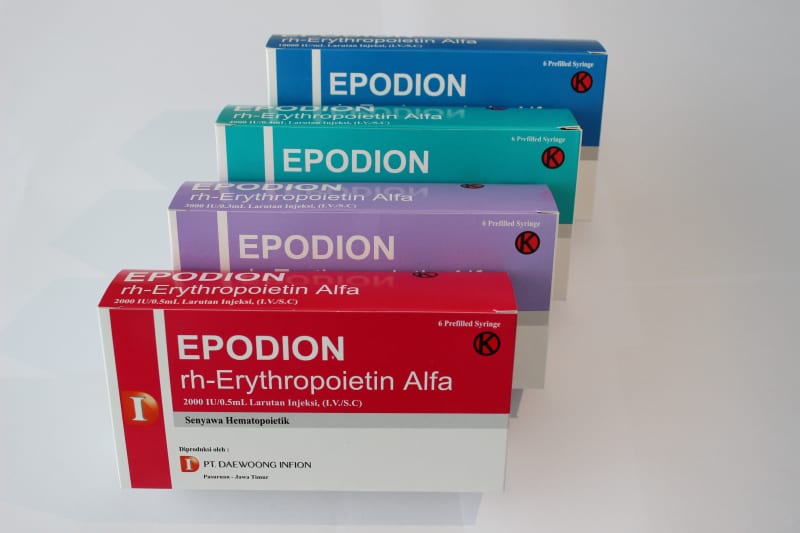Korean-Indonesian JV’s MUI halal status for biopharma product derived from animal cells not protected by nat’l halal authority – BPJPH head
JAKARTA – A Korean-Indonesian joint venture has received what is believed to be the world’s first halal certification for a biopharmaceutical product derived from animal cells but the halal status cannot be vouched for by Indonesia’s halal authority.
Daewoong Infion, a JV between Korea Exchange-listed Daewoong Pharmaceutical and Indonesian company Infion, secured halal certification for its Epodion on January 3 from MUI-LPPOM, Chang Woo Suh, its President Director told Salaam Gateway.
Epodion is an anaemia treatment for dialysis patients with kidney failures, and cancer patients. It obtained approval from Indonesia’s National Agency of Drug and Food Control (BPOM) in December 2016 and launched in the country in April 2017.
Daewoong Infion prepared for its overseas sales following the good response the product received in Indonesia, and identified halal certification as the key to entering Muslim-majority markets such as the Middle East, said Chang.
“We are aware that the global halal market, especially for pharmacy, offers a big opportunity,” Chang told Salaam Gateway.
Daewoong Infion started the process of halal certification for Epodion from MUI-LPPOM in October 2017. It took more than two years to get the halal status as the science of biopharmaceutical products that use animal cells was complex, according to Chang.
The company’s halal status from MUI-LPPOM comes after the authority for halal certification moved from the Islamic clerical body to government agency BPJPH in October 2019.
Chang said he was aware in 2017 that BPJPH was taking over as the sole national halal authority but companies continued to work with MUI-LPPOM until the government agency became operational in October 2019.
The head of BPJPH, Prof. Sukoso, told Salaam Gateway on Friday (Jan 10) that he was not aware Daewoong Infion had applied for halal certification in 2017 when the government body was raising awareness among industry players of its impending responsibilities.
He warns that the Indonesian government will not take responsibility for any public complaints or grievances about any product that carries halal certification from an agency other than BPJPH.
“If Daewoong Infion applied for halal certification to MUI-LPPOM after October 2019, I will write a formal note and discuss it at the government-to-government level,” said Prof. Sukoso.
“However, if [the company] applied [to MUI-LPPOM] before October 2019, the situation is understandable,” he said.
Chang said his company will renew its halal status for Epodion with BPJPH when the MUI-LPPOM certification expires in 2022.
Daewoong Infion plans to increase its market penetration for all products it manufactures, and are halal-certified in Indonesia, including Epodion, Epidermal Growth Factor (EGF) and growth hormone-making drug Caretropine, said Chang.
It has more than 40% market share in Indonesia in the erythropoietin (EPO) category that Epodion falls under, according to Chang.
“Currently, we are negotiating with the Indonesian government to get an export license to sell EPO to Muslim countries such as Turkey, Saudi Arabia, Iran, and Egypt,” said Chang.
He estimates the market value for EPO in Muslim-majority countries at around 3 trillion rupiah ($217.99 million).
(Reporting by Yosi Winosa; Editing by Emmy Abdul Alim [email protected])
© SalaamGateway.com 2020 All Rights Reserved
